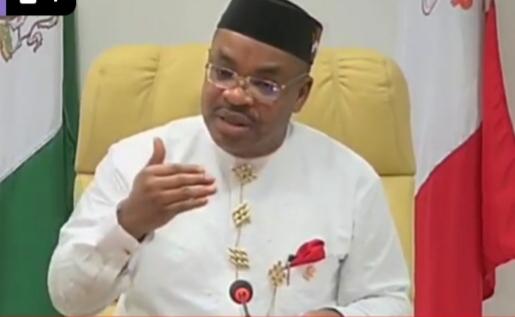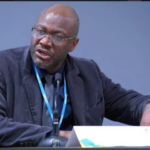Akwa Ibom State Governor, Mr Udom Emmanuel has presented a budget of N582.115 billion for the 2022 fiscal year to the State House of Assembly.
The 2022 budget estimate which is christened budget of ‘Redefining Standards’ is less than the revised estimate of N598. 98billion for 2021.
It is made up of N260.15 billion for recurrent expenditure and N321.96 billion for capital expenditure, while the total projected recurrent revenue for 2022 is estimated at N273.85 billion as against the approved revised provision of N260 billion for 2021.
- Budget: Senate fumes over rising salary despite embargo on recruitment
- Gov Lalong presents N106 billion 2022 budget to Plateau Assembly
Speaking on Monday in Uyo, Gov. Emmanuel said that the preparation of the budget was guided by the International Public Sector Accounting Standard (IPSAS).
He said the budget was predicated on an oil benchmark of $57 per barrel at a production rate of 1.88 million barrels per day with an estimated exchange rate of ₦410.15/US$, in line with the National Budget benchmark projections.
He mentioned that the budget would focus on his 8-Point Completion Agenda of Industrialization, Education, Aviation Development, Rural and Riverine Area Development, Agriculture, Small and Medium Scale Enterprises, Infrastructure Expansion and Consolidation, Security and Human Capacity Development.
According to him, the comprehensive Economic Agenda cut across all aspects of Sustainable Development Goals (SDGs).
“We intend to achieve a sizeable number of the SDGs targets as we implement the 2022 budget. The main thrust, however of the 2022 Budget is to create more jobs for our teeming youths.
“The policy objectives of the 2022 budget is to stimulate the State’s economy with a view to creating more opportunities for gainful employment of our citizens through Industrialization and Agriculture.
“Economic growth and job-generating infrastructural investments in roads, bridges, Renewable Energy and communication technologies.
“Promotion of Small and Medium Scale Enterprises (SMEs) as well as enhancement of local capacities in manufacturing and use of “made in Akwa Ibom” goods and services to create jobs and achieve self-sufficiency in critical sectors of the State’s economy,” he stated.

 Join Daily Trust WhatsApp Community For Quick Access To News and Happenings Around You.
Join Daily Trust WhatsApp Community For Quick Access To News and Happenings Around You.


